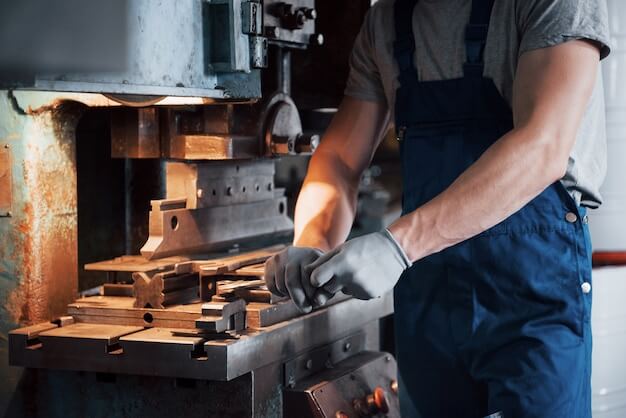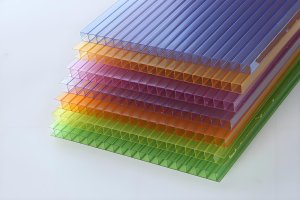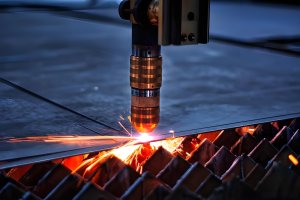Introduction to Brass CNC Machining and Its Importance in Custom Metal Fabrication and Prototyping
CNC machining, a digitally-powered manufacturing process that deploys pre-programmed computer software to manipulate tools’ movement and product contours. When brass is the chosen material under this mechanism, we refer to it as Brass CNC Machining. This technique’s overall accuracy, speed, and consistent quality make it an integral part of custom metal fabrication and prototyping within the manufacturing industry.
The significance of custom metal fabrication and prototyping is multi-faceted; they facilitate faster turnaround times, enhanced precision, and cost-effectiveness. They play a pivotal role in:
- Aiding prototype designs by allowing for adjustments without leading to significant costs or extensive delays.
- Revealing design issues earlier since 3D modeling can identify potential problems before production begins.
- Incurring less waste because of precise cuts from sophisticated machines, thus minimizing expenditure on raw materials.
All these benefits collectively contribute towards making a case for incorporating Brass CNC machining in the realm of custom metal fabrication and prototyping.
The Composition and Properties of Brass
Brass, a versatile and resilient alloy, primarily comprises copper (Cu) and zinc (Zn), typically with proportions varying between 55% to 75% copper and the balance being zinc. These proportions can be adjusted according to specific needs, implying that brass’s mechanical properties like strength, ductility, color, and corrosion resistance can be controlled. For instance,’ red’ or ‘gunmetal’ brass consists of almost 85% copper, which is mainly used in plumbing applications due to its superior corrosion resistance. Conversely, ‘yellow’ brass contains nearly 67% Cu and finds usage in cosmetic settings.
Further, unique characteristics of brass make it exceptionally suitable for CNC machining. As a soft metal, it offers excellent machinability which means less tool wear when cutting, drilling or milling – thereby increasing the operational efficiency of CNC machines. It also features good thermal conductivity which benefits heat dissipation during machining operations making it a preferred material choice. Also notable is its anti-friction property which enhances longevity of parts, especially those involved in continuous motion. The natural antimicrobial property of brass adds an additional advantage in sectors demanding high hygiene standards such as medical equipment manufacturing.
Importance of Using Brass in Custom Metal Fabrication and Prototyping
In the realm of custom metal fabrication and prototyping, brass consistently comes out on top due to its multiple advantageous properties. One primary advantage is its exceptional durability making it an ideal material for products that must withstand substantial wear and tear. Its strong nature ensures longevity thus guaranteeing reduction in replacement costs.
- The toughness of brass allows it to easily deal with intense friction yet maintaining its shape and strength.
- Resistance to corrosion adds another feather to the cap. This characteristic enables it to resist rust, promoting longer lifespan of final product without loss of quality or functionality over time.
- This makes brass a cost-effective choice in the long run since materials susceptible to corrosion require frequent replacements which can inflate overall operational expenditure.
Taking these aspects into account, using brass in production gives manufacturers an edge compared to those relying on other metals. As every business strives for reliability, efficiency and reducing overheads, the decision to opt for brass when crafting prototypes or during custom fabrications becomes an obvious smart choice.
Practical Application of Brass in CNC Machining
Brass is widely used in CNC machining for practical applications such as plumbing and piping material, fittings, electronics and electrical terminals, and musical instruments. Its advantages in terms of machinability, corrosion resistance, and electrical conductivity make it a versatile choice for custom metal fabrication and prototyping.
Comparison Between Brass and Other Commonly Used Materials in CNC Machining
In the world of CNC machining, various metals are used due to their own individual merits. However, when comparing brass to other commonly used materials such as aluminum or steel, several performance differences become evident. The higher malleability of brass allows for more complex and intricate designs, presenting an advantage in custom metal prototyping.
- Durability: Brass offers superior durability compared with aluminum, resulting in products that withstand wear and tear better over time.
- Machinability: In comparison to steel, brass has a quicker milling time owing to its softer properties, speeding up production processes drastically.
- Corrosion Resistance: Unlike iron-based materials, brass is highly resistant to corrosion, offering longer service life particularly in harsh environmental conditions.
- Thermal Conductivity: With better thermal conductivity than stainless steel, brass parts dissipate heat quickly preventing overheating during operation.
The selection of material greatly depends on the end use of the product, however, the versatility and advantages offered by brass often make it an excellent choice for a variety of CNC machining applications.
Conclusion
In conclusion, Brass CNC machining has emerged as a superior approach for custom metal fabrication and prototyping due to the numerous advantages that brass holds over other materials. Its remarkable machinability not only eases the overall manufacturing process but also guarantees impeccable precision in output. As brass possesses excellent corrosion resistance, its products have an extended lifespan even under harsh conditions. Brass’s high thermal conductivity further accelerates cooling times during machining which enhances production efficiency while retaining quality.
- Machinability: Brass allows for smooth machining, ensuring efficient outputs without compromising on design intricacies.
- Corrosion Resistance: The durability of brass makes it ideal for environments where it would be exposed to corrosive elements, thus increasing the longevity of the finished products.
- Thermal Conductivity: Higher heat dissipation rates are achievable with brass. This attribute is essential in operations like drilling, reducing downtime and enhancing productivity.
Looking into the future, it seems likely that research will delve deeper into perfecting CNC machining processes specific to brass and its alloys. Additionally, given the rising importance of sustainability in manufacturing, we might see an uptick in studies focusing on the recyclability aspect of brass in the context of CNC machining.
Other Articles You Might Enjoy
- Brass CNC Machining: Advantages and Applications in Custom Metal Fabrication?
Introduction: The Importance of CNC Machining in Manufacturing In the realm of manufacturing, Computer Numerical Control (CNC) machining plays a pivotal role. This highly automated process uses software to command…
- Brass vs. Bronze: Unveiling the Superior Metal for CNC Machining
Introduction CNC machining stands for Computer Numerical Control machining, a manufacturing process where pre-programmed computer software dictates the movement of factory tools and machinery. This technique is pivotal for creating…
- Aluminum vs. Brass in CNC Machining: Determining the Best Metal for Your Precision Components
Introduction to CNC Machining and Precision Components CNC machining, an acronym for Computer Numerical Control machining, is a manufacturing process in which pre-programmed computer software dictates the movement of machinery.…
- Precision CNC Machining of Brass: Optimizing Techniques for Custom Metal Fabrication?
Precision CNC Machining of Brass: An Introduction In the realm of custom metal fabrication, precision CNC machining holds a cardinal position. This technological method entails the use of computer numerical…
- Using CNC Machining to Fabricate Lightweight Metal and Remove Chrome From Metal( cnc machining services china Dana)
CNC (Computer Numerically Controlled) machining is an essential process in the manufacturing domain. With its precision, adaptability, and extensive applications, many industries rely on it for fabricating highly complex parts…
- Efficient CNC Machining of Lightweight Metal and Chrome Removal( cnc machining services china Atwood)
Computer Numerical Control (CNC) machining is a modern manufacturing process used in various industries, frequently dealing with lightweight metals or needing to remove chrome from metal surfaces. This article will…






